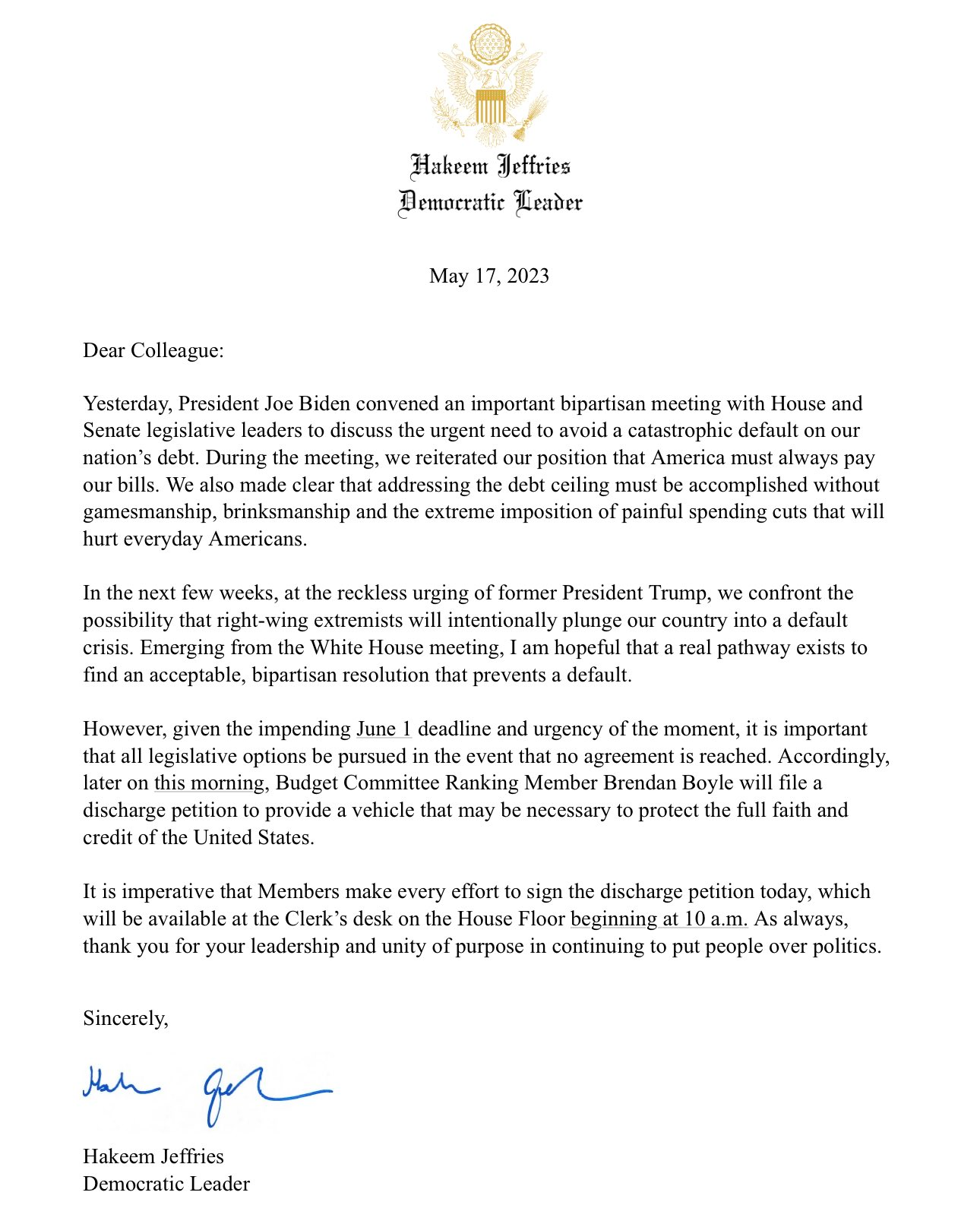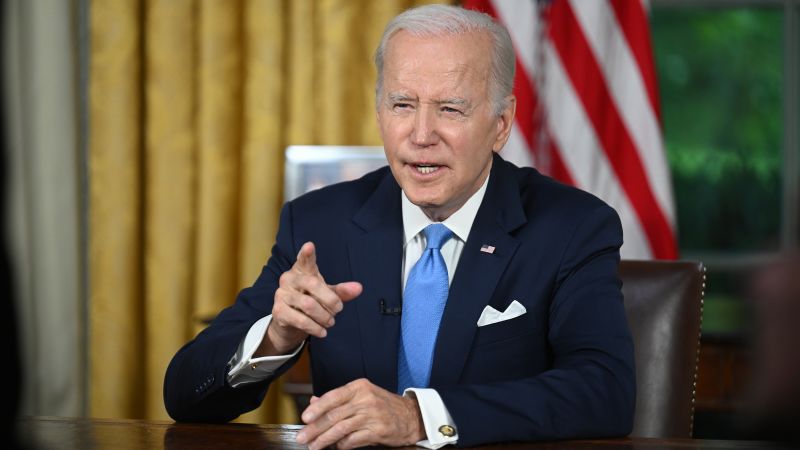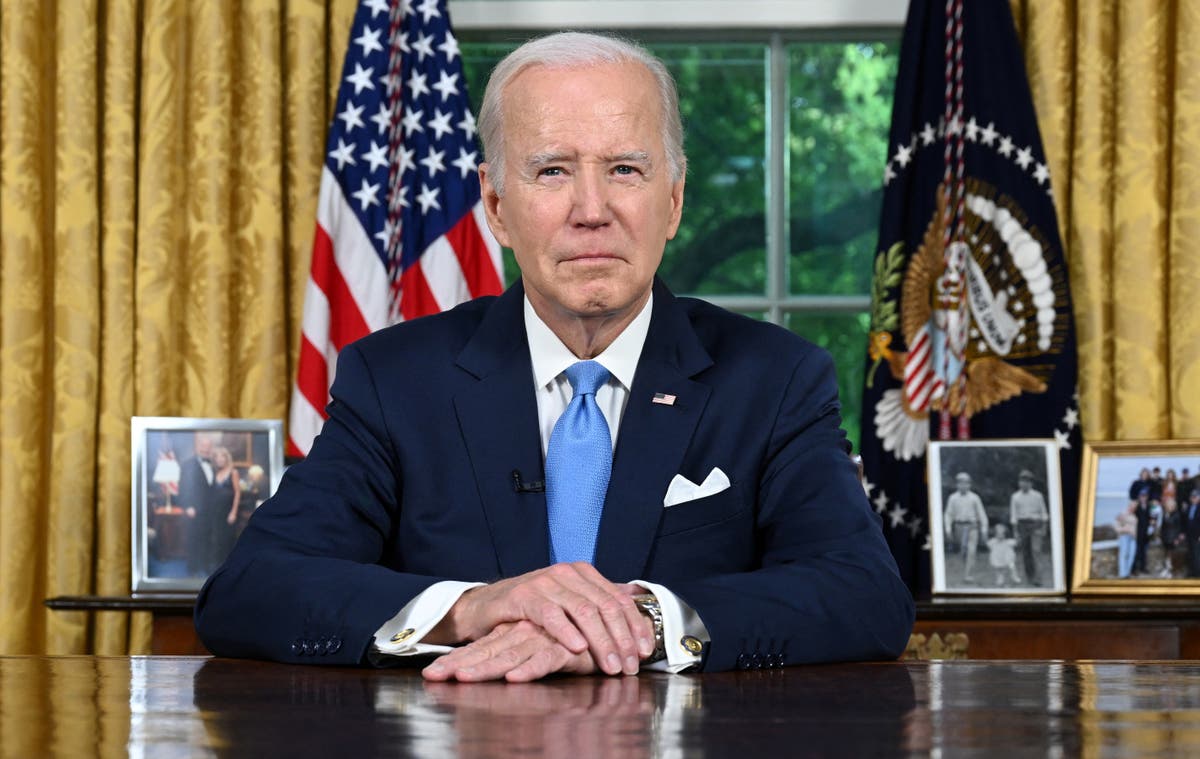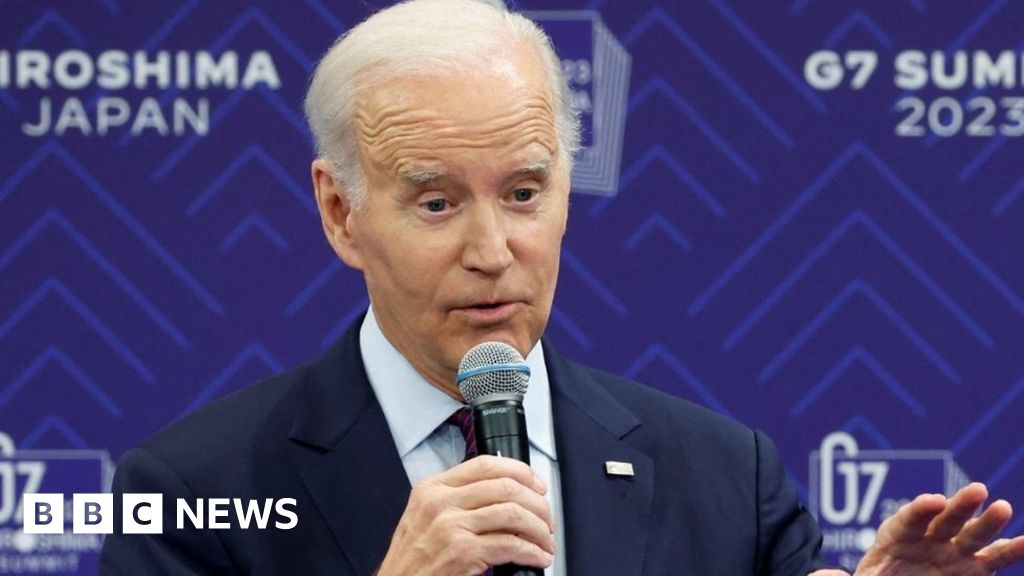
The US has already hit the debt ceiling in Jan 2023 and the Treasury department is using accounting maneuvers to keep paying the bills with so-called "extraordinary measures" (1), which are expected to run out in the summer. At that point, if no action has been taken, the US government will be unable to pay its bills, aka default. Or, the US government could potentially choose to deploy some "gimmick" to circumvent the debt ceiling and avoid default.
Will Congress raise the debt ceiling, or will the US government be forced to either default or deploy a "gimmick" to circumvent the debt ceiling?
Resolves based on which of these happens first:
Resolves YES if the US raises or suspends the debt ceiling
Resolves NO if the US defaults on its debt (see /jack/will-the-us-government-default-on-i )
Resolves NO if the US circumvents the debt ceiling, e.g. by "minting the coin", issuing forms of debt that bypass the debt limit like premium or perpetual bonds, issuing debt that violates the statutory debt ceiling, declaring the debt ceiling unconstitutional, etc. See the markets below for a non-comprehensive list of examples that would qualify.
The already ongoing "extraordinary measures" do not count because they are normal practice, and they only temporarily delay running out of funds due to the debt ceiling, they do not circumvent it.
(1) Extraordinary measures are things like temporarily replacing bonds in federal employee's retirement accounts with IOUs (the bonds are put back with appropriate interest after the debt ceiling crisis is over). They were explicitly legalized by Congress after the 1985 debt ceiling crisis, and they stopped being extraordinary after we used them regularly for decades of past debt ceiling crises.
Grouped markets
🏅 Top traders
| # | Trader | Total profit |
|---|---|---|
| 1 | Ṁ1,134 | |
| 2 | Ṁ388 | |
| 3 | Ṁ288 | |
| 4 | Ṁ239 | |
| 5 | Ṁ141 |
People are also trading
Biden signs debt ceiling deal into law, averting historic default
https://www.cnn.com/2023/06/03/politics/biden-signs-debt-ceiling-deal/index.html
https://www.bbc.com/news/world-us-canada-65666067
President Joe Biden and top Republican Kevin McCarthy have spoken on the phone, in a change of tone in stalled talks on lifting the US debt ceiling.
Mr McCarthy said his call with Mr Biden, who was returning from the G7 summit in Japan, had been "productive" and the two would meet on Monday.
The two sides remain at odds over budget cuts demanded by the Republicans as a condition for raising the ceiling.
Democrats filing discharge petition today and start collecting signatures as a fallback plan:

Democratic and Republican leaders today issued opposing statements declaring work requirements nonnegotiable (Republicans demanding they are included in any debt ceiling package, Democrats demanding that they aren't):
Jeffries says work requirements are a ‘nonstarter’ in debt ceiling fight
McCarthy says work requirements a ‘red line’ in debt ceiling talks
Here's a new question on that:
https://www.ft.com/content/0b4ecf56-c2c7-41e7-b16c-1462955bcb3b
The shape of a possible US debt ceiling agreement between the White House and Republicans in Congress is emerging as they intensify talks in a bid to avoid an unprecedented national default.
Staff-level negotiations between the White House and Congress are beginning to look promising. But big divides remain.
https://www.nytimes.com/2023/05/10/business/biden-debt-ceiling.html
For the first time, Mr. Biden signaled he was open to clawing back some unspent stimulus money included in the economic rescue bill he signed in 2021 during the pandemic. That suggested a potential starting ground for compromise between the president and Republican lawmakers, who have refused to raise the nation’s borrowing limit without deep spending cuts, and who have pushed to rescind some stimulus funds.
The president acknowledged that he is considering what would effectively be a constitutional challenge to the very existence of the debt limit. It is a unilateral path that Mr. Biden conceded could face legal hurdles. But his comments suggested that if Congress could not find a deal to raise the debt limit on terms acceptable to Mr. Biden — and before the nation runs out of cash to pay its bills — the president might be prepared to try to avoid default on his own.
President Joe Biden said on Friday he was not yet ready to invoke the 14th Amendment to avoid the United States defaulting on its debts as early as June 1, comments which for the first time suggested he has not ruled out the option.


